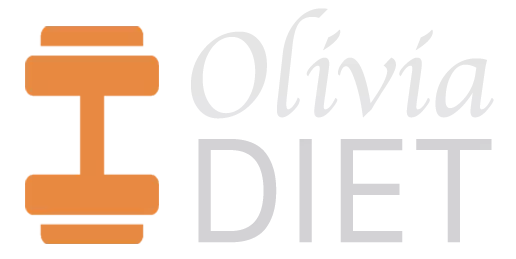Weight-Wise Wellness: Low-Calorie Protein Powder for a Healthier Lifestyle
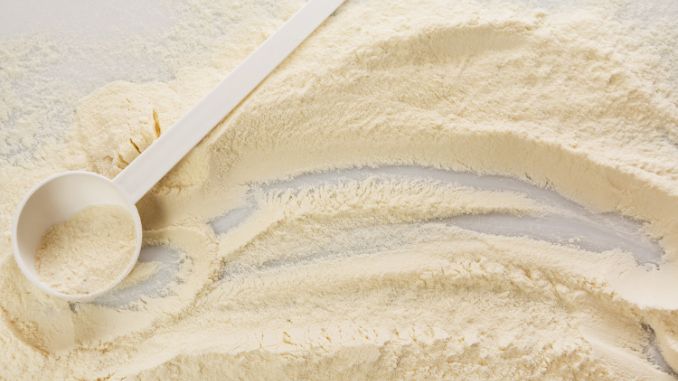
Last updated on April 11th, 2025 at 08:15 pm
In the dynamic realm of fitness and nutrition, the significance of low-calorie protein powder as a multifaceted dietary supplement has become increasingly evident.
This article navigates the nuances of this nutritional dynamo, shedding light on its myriad benefits, intricate nutritional profile, pivotal role in weight management, diverse types available, and practical strategies for effortless incorporation into your daily regimen.
From enhancing muscle recovery and promoting satiety to accommodating diverse dietary preferences, low-calorie protein powder stands as a cornerstone in optimizing overall health and wellness. Moreover, by unraveling the layers of its versatility, this piece aims to empower individuals with the knowledge needed to make informed choices in the pursuit of a healthier lifestyle.
Understanding Low-Calorie Protein Powder
Low-calorie protein powder is a dietary supplement that boosts protein intake without significantly increasing calorie consumption. Additionally, this makes it ideal for weight management or those on low-calorie diets. These powders typically contain fewer calories than standard protein powders while providing ample protein.
Moreover, they help with muscle recovery and growth, increase feelings of fullness, and assist in maintaining healthy body composition. However, calorie content can differ between brands and flavors, so it's crucial to carefully check the nutrition label before making a purchase.
Benefits of Low-Calorie Protein Powder
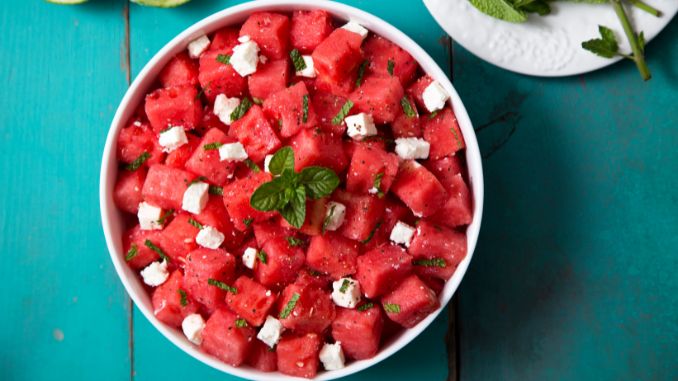
Low-calorie protein powder offers several benefits for individuals looking to maintain a healthy lifestyle. It provides a convenient and efficient [¹] way to increase protein intake without consuming excess calories. Moreover, this is especially advisable for individuals aiming to lose weight or manage their calorie intake.
Additionally, low-calorie protein powder can help support muscle recovery and growth after intense workouts, making it an ideal protein supplement for athletes and fitness enthusiasts. It can help curb appetite and promote feelings of fullness, aiding in weight management.
Low-calorie protein powder often contains essential amino acids crucial for various bodily functions, such as immune support and hormone production. Additionally, incorporating low-calorie protein powder into a balanced diet can be a valuable for achieving fitness and wellness goals.
Types of Low-Calorie Protein Powder
There are several types of low-calorie whey protein supplements and powders available in the market today. Moreover, whey Protein derived from milk, whey protein powders is a well-known and rapidly absorbed option. It contains all essential amino acids and is particularly effective for post-workout recovery.
-
- Whey Protein Isolate Powder
Whey protein isolate is essentially whey protein concentrate that has undergone additional processing to reduce its lactose and fat content. Typically, whey protein isolate contains a minimum of 90 percent protein. It is widely regarded as the superior choice compared to whey protein concentrate.
-
- Plant-Based Protein Powder
These protein powders are made from plant sources such as peas, rice, hemp, or soy. They are typically lower in calories than whey protein and are suitable for vegans and individuals with dairy allergies.
-
- Collagen Protein Powder
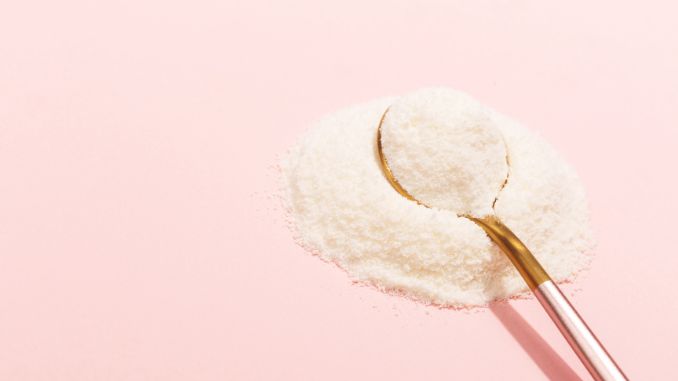
Additionally, collagen protein powder is derived from animal connective tissues and is known for its potential benefits for skin, hair, and joint health. It is relatively low in calories and often used as a supplement.
-
- Egg White Protein Powder
Egg white protein powder is made from the whites of eggs and is a complete protein source. Additionally, it is low in calories and provides essential amino acids.
-
- Casein Protein Powder
Casein protein is another dairy-based protein powder that is low in calories. It is slower-digesting than whey, making it suitable for a sustained release of amino acids.
-
- Pea Protein Isolate
Pea protein isolate is derived from yellow peas and is an excellent choice for vegetarians and vegans. It's low in calories, high in protein, and easy to digest.
-
- Rice Protein Powder
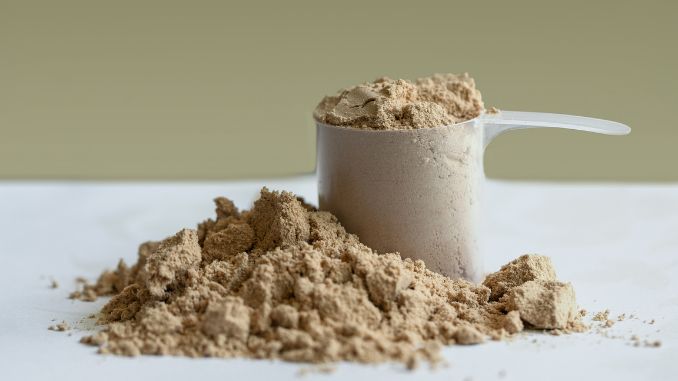
Rice protein powder is made from brown rice and is a good source of plant-based protein. Additionally, it's typically low in calories and can be used in various recipes and shakes.
-
- Hemp Protein Powder
Hemp protein is derived from hemp seeds and is rich in omega-3 fatty acids and fiber. It's relatively low in calories and provides a complete amino acid profile.
-
- Mixed Plant-Based Blends
Some protein powders combine multiple plant-based sources like pea, rice, and hemp to provide a well-rounded amino acid profile while keeping calories in check.
-
- Blended Protein Powders
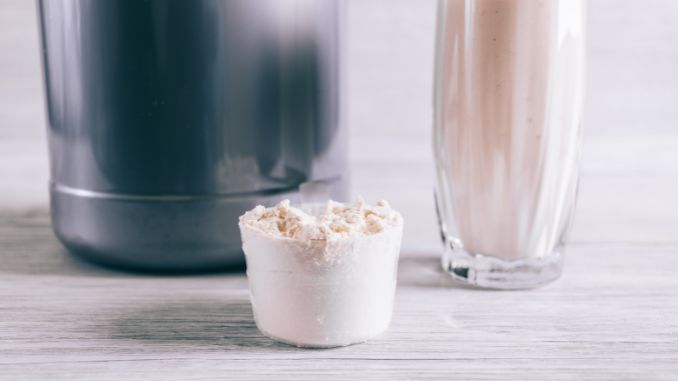
Some protein powders are a blend of different protein sources, including whey, casein, and plant-based proteins. Additionally, tthese blends can offer a combination of fast and slow-digesting proteins.
-
- Grass-Fed Whey Protein
Grass-fed whey protein is derived from the milk of cows that primarily graze on grass.
It is considered a high-quality protein source and can be lower in calories compared to conventional whey protein, making it a suitable choice for those seeking low-calorie protein options while benefiting from the perceived advantages of grass-fed dairy products.
How to Choose the Suitable Low-Calorie Protein Powder for Your Goals?
When choosing the suitable low-calorie protein powder for your goals, there are several factors to consider.
-
- Dietary Goals: Identify your specific dietary goals, whether muscle gain, weight loss, or overall health improvement.
-
- Taste Preferences: The taste of protein powder varies among types and brands. Moreover, experiment with different flavors to find one that suits your palate.
-
- Allergies and Restrictions: Consider any allergies or dietary restrictions you may have. Opt for a protein powder that aligns with your specific needs.
-
- Reading Labels: Thoroughly read product labels to understand the powder's protein sources, additional ingredients, and nutritional content.
Best Low-Calorie Protein Powder
1. Naked Nutrition Naked Whey 1Lb
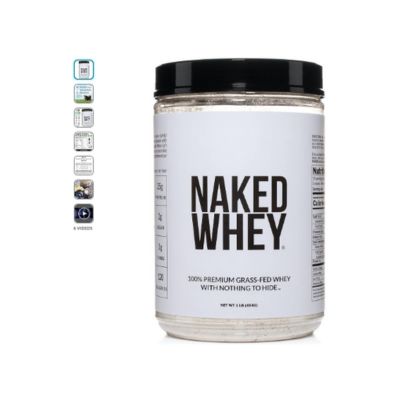

Naked Whey is a premium, single-ingredient protein powder made from 100% Grass-Fed Pure Whey, free from additives, GMOs, soy, and gluten.
Additionally. it's sourced from small dairy farms, ensuring a clean, non-denatured protein rich in essential amino acids and BCAAs.
Moreover, with 25g of protein, low sugar, and carbs per serving, it's cold-processed to preserve nutrients and is perfect for enhancing your workout recovery and muscle gains.
Ideal for shakes, smoothies, and baking, Naked Whey is the ultimate choice for those seeking pure, high-quality protein.
2. BIRDMAN Falcon Organic Vegan Protein Powder Vanilla
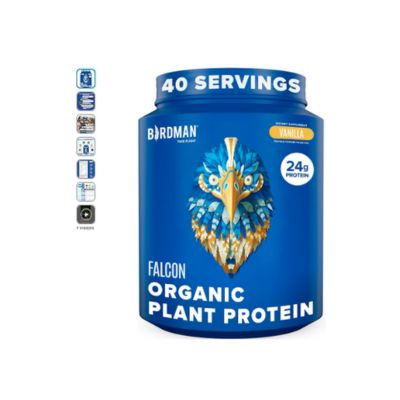

This plant-based protein powder offers 24g of organic pea protein with zero sugar per serving, sweetened naturally with monk fruit.
It's made with six clean ingredients, free from artificial sweeteners and fillers. The product includes digestive enzymes and probiotics for improved digestion and nutrient absorption, ensuring no bloating.
Additionally, its smooth vanilla flavor mixes well in beverages and baked goods. Moreover, Birdman, the company behind the product, is committed to 100% plant-based, sustainable, and cruelty-free nutrition and supports animal welfare through the Animal Heroes Association.
3. Designer Wellness, Designer Lite
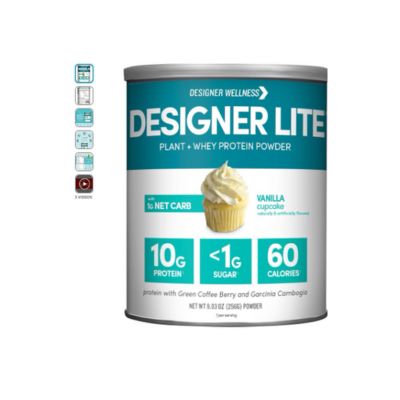

Though packaging may vary, this product is a 9.03-ounce canister of Designer Protein Lite Protein Powder in Vanilla Cupcake flavor.
Additionally, each serving provides 10g of natural protein, complete with essential amino acids, at only 60 calories, with 1g net carbs, and is fat-free and sugar-free.
Moreover, it includes prebiotic fiber for digestive health and satiety, plus B vitamins, Vitamin D, and calcium for energy and bone health.
Incorporating Low-Calorie Protein Powder into your Diet
Incorporating low-calorie protein powder into your diet can significantly boost your protein intake [²] without adding excessive calories. Protein is a macronutrient crucial in building and repairing muscles, supporting immune function, and promoting satiety.
However, many protein sources, such as meat and dairy products, can be high in calories and saturated fats.Adding low-calorie protein powder to your meals or snacks can increase your protein intake while keeping your calorie intake in check.
Moreover, mix protein powder into smoothies, oatmeal, yogurt, or even bake to create high-protein snacks or desserts. With the variety of flavors available, you can easily find one that suits your taste preferences.
Recipes and Meal Ideas Using Low-Calorie Protein Powder
Low-calorie protein powder is a versatile ingredient that can be incorporated into various recipes to boost protein content without significantly increasing calorie intake. Here are some ideas for meals and snacks:
1. Protein Shakes
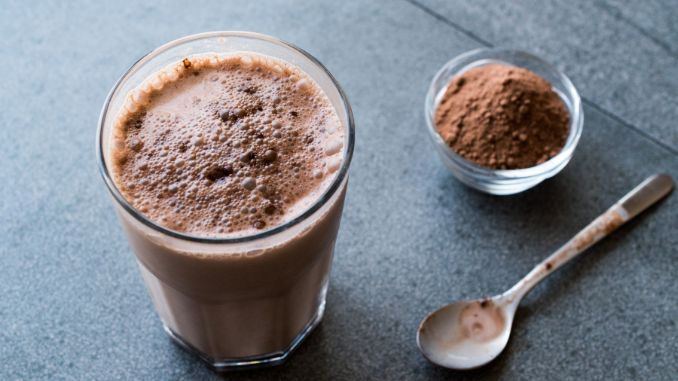
Ingredients:
- 1 scoop low-calorie protein powder
- 1 cup water or low-calorie milk alternative
- 1/2 cup frozen berries
- Handful of spinach
- 1 tablespoon nut butter
- Ice cubes (optional)
Instructions:
- In a blender, combine protein powder and liquid.
- Add frozen berries, spinach, and nut butter.
- Blend until smooth.
- Add ice cubes if desired and blend again.
- Moreover, pour into a glass and enjoy!
2. Protein Oatmeal:
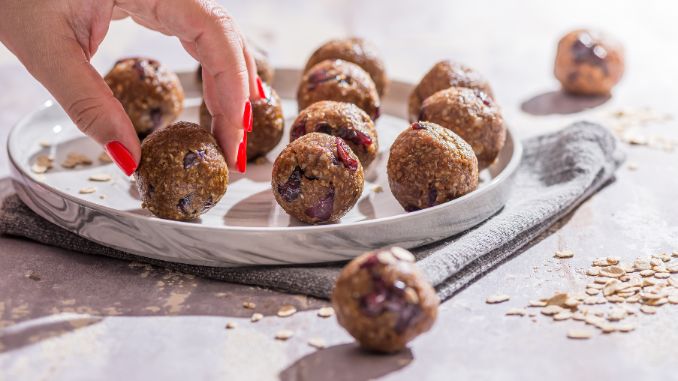
Ingredients:
- 1 scoop low-calorie protein powder1/2 cup rolled oats
- 1 cup water or low-calorie milk alternative
- Sliced fruits (e.g., bananas, berries)
- Nuts for topping
Instructions:
- Cook oats with water or milk.
- Stir in protein powder until well combined.
- Top with sliced fruits and nuts.
- Moreover, enjoy a protein-packed breakfast!
3. Protein Pancakes:
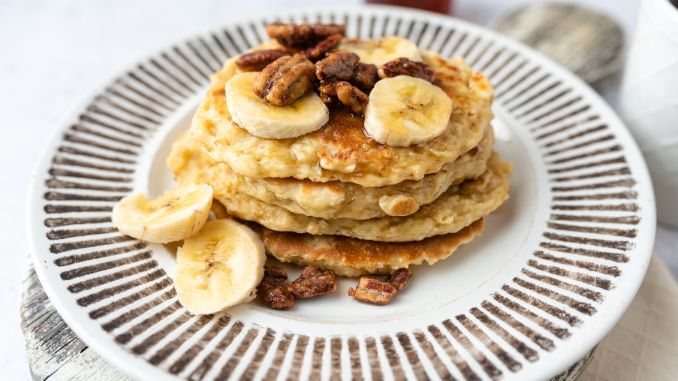
Ingredients:
- 1 scoop low-calorie protein powder
- 1/2 cup oat flour
- 1/2 tsp baking powder
- 1 ripe banana, mashed
- 1/2 cup egg whites
- 1/2 tsp vanilla extract
- Cooking spray or oil
Instructions:
- Mix dry ingredients, then add mashed banana, egg whites, and vanilla.
- Additionally, heat a pan and coat with cooking spray or oil.
- Pour 1/4 cup batter per pancake.
- Cook until bubbles form, then flip and cook the other side.
- Moreover,, stack pancakes and top as desired.
4. Protein Energy Bites:
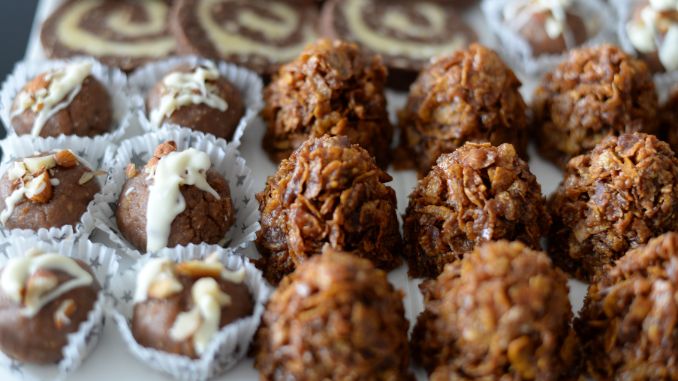
Ingredients:
- 1 scoop low-calorie protein powder
- 1 cup rolled oat
- 1/2 cup nut butter
- 1/3 cup honey or maple syrup
Instructions:
- Mix protein powder, oats, nut butter, and sweetener.
- Form into small balls.
- Refrigerate until firm.
- Moreover, grab a bite for a protein-rich snack!
5. Protein Yogurt Parfait:
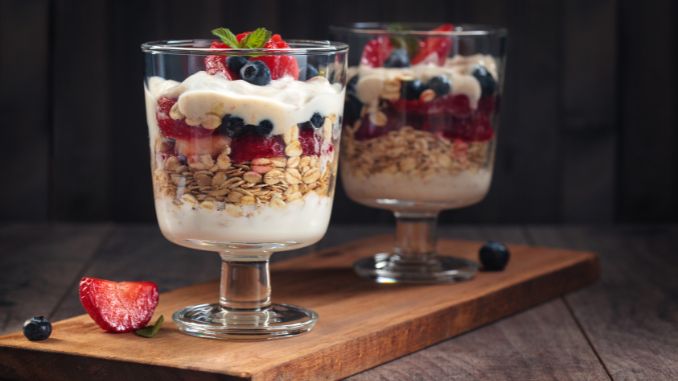
Ingredients:
- 1 scoop low-calorie protein powder
- Greek yogurt
- Granola
- Fresh berries
Instructions:
- Layer Greek yogurt with protein powder.
- Add granola and fresh berries.
- Repeat layers.
- Moreover, Enjoy a protein-packed parfait!
6. Protein Coffee Smoothie:
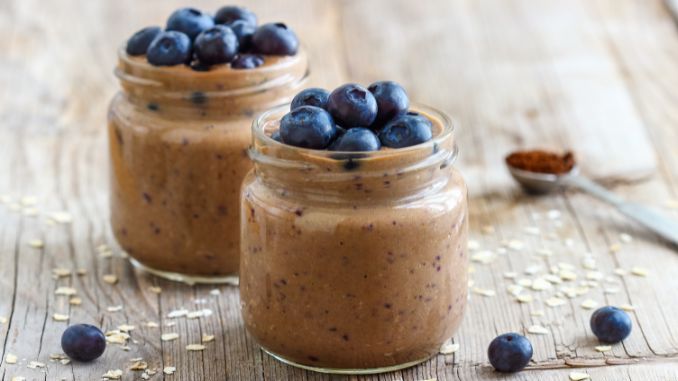
Ingredients:
- 1 scoop low-calorie protein powder
- 1 cup coffee
- Ice
- Dash of cinnamon
- Almond milk (optional)
Instructions:
- Blend coffee, protein powder, ice, and cinnamon.
- Add almond milk if desired.
- Blend until smooth.
- Moreover, enjoy a protein coffee treat!
7. Protein Soup:
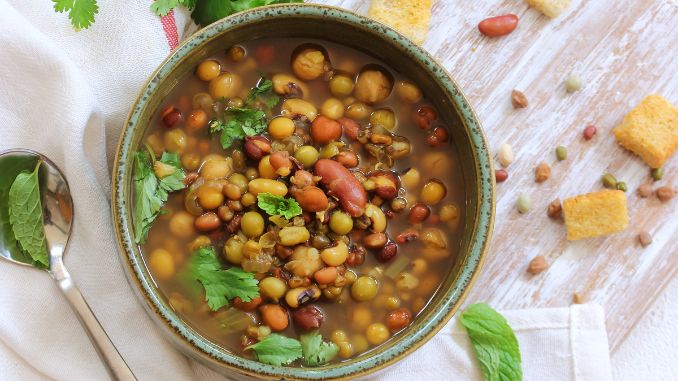
Ingredients:
- Unflavored protein powder
- Hot soup
Instructions:
- Stir protein powder into hot soup.
- Mix well to avoid clumps.
- Moreover, enjoy a protein-enriched soup!
8. Protein Popsicles:
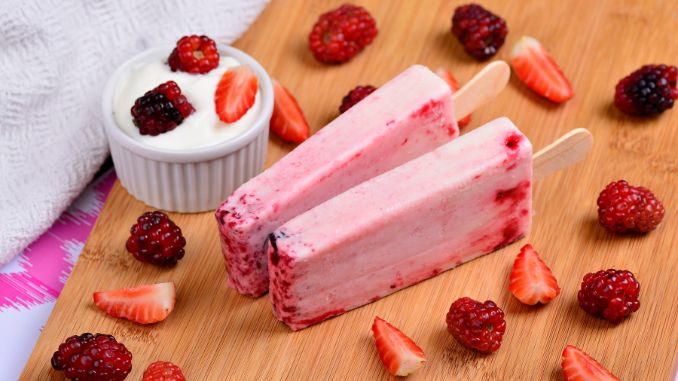
Ingredients:
- 1 scoop low-calorie protein powder
- Water or low-calorie liquid
Instructions:
- Mix protein powder with liquid.
- Pour into popsicle molds.
- Moreover, freeze for a protein-packed popsicle!
9. Protein Muffins:
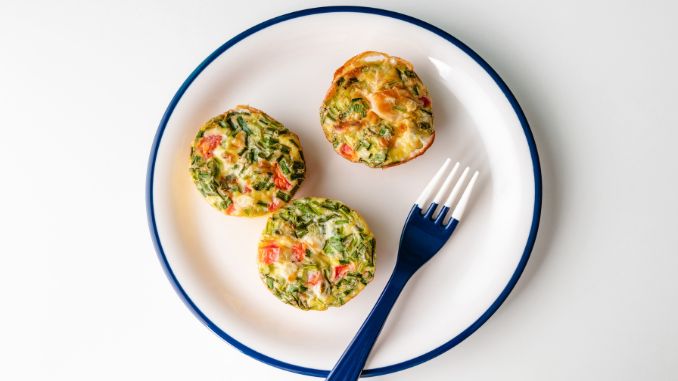
Ingredients:
- 1 scoop low-calorie protein powder
- Your favorite muffin recipe ingredients
Instructions:
- Replace some flour with protein powder.
- Add fruits or nuts.
- Moreover, bake according to the muffin recipe.
- Moreover, enjoy protein-rich muffins!
10. Protein Salad Dressing:

Ingredients:
- 1 scoop unflavored protein powder
- Olive oil
- Balsamic vinegar
- Herbs
Instructions:
- Mix protein powder with olive oil and balsamic vinegar.
- Add herbs for flavor.
- Additionally, use as a high-protein salad dressing.
The Importance of Exercise in Conjunction with Low-Calorie Protein Powder

Exercise plays a crucial role in maintaining overall health and wellness. The benefits become even more pronounced when combined with a low-calorie protein powder.
Regular physical activity helps to build and strengthen muscles, increase cardiovascular endurance, and improve overall fitness levels. Protein powder, on the other hand, provides essential amino acids that aid in muscle recovery and growth.
By incorporating exercise and low-calorie protein powder into a fitness routine, individuals can optimize their workouts and achieve better results. Together, they promote muscle development, aid in weight loss, and enhance overall physical performance.
It is essential to consult with a healthcare professional or fitness expert to determine the appropriate type and amount of protein powder and exercise for individual needs and goals.
Common Misconceptions About Low-Calorie Protein Powder
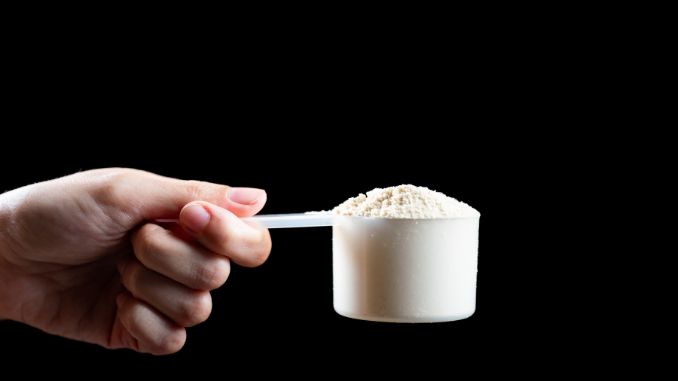
Several common misconceptions about the lowest calorie protein powder need to be addressed. One misconception is that the lowest calorie protein powder is ineffective for muscle building or weight loss.
However, this is not true.The lowest-calorie protein powder can still provide the necessary amino acids for muscle growth and repair while helping to keep calorie intake in check. Another misconception is that the lowest calorie protein powder needs to have taste and flavor.
While some brands may taste better than others, many options of the lowest calorie protein powder have delicious flavors and can be easily incorporated into smoothies or recipes.
Lastly, there is a misconception that the lowest calorie protein powder is only for athletes or bodybuilders. In reality, anyone can benefit from incorporating the lowest-calorie protein powder into their diet to help meet their daily protein needs and support overall health and wellness.
Potential Side Effects of Low-Calorie Protein Powder

Low-calorie protein powders are often promoted as convenient weight loss and muscle-building tools. However, it's crucial to recognize potential drawbacks.
One possible issue is nutrient deficiencies, as these powders may lack essential vitamins and minerals compared to higher-calorie options, potentially leading to health complications.
In addition, inadequate protein intake from these powders can contribute to muscle loss, fatigue, weakened immunity, and hair and skin problems. Furthermore, gastrointestinal discomfort [³], including bloating, gas, and diarrhea, can arise from their high protein content and artificial sweeteners.
Allergic reactions are also possible, especially among those sensitive to whey or soy protein. Moreover, some low-calorie protein powders may contain additives or fillers that cause digestive issues.
Lastly, protein powders can also be high in added sugars and calories. true enough that some have minimal added sugar since they claim to be low calorie protein powders, but others can contain up to 23 grams per scoop.
Consequently, mixing protein powder with milk can result in a drink exceeding 1,200 calories. Thus, leading to weight gain and unhealthy blood sugar spikes if consumed improperly. To ensure safety and address concerns, consulting a healthcare professional before incorporating these powders into your diet is advisable.
Conclusion: Embracing a Healthier Lifestyle with Low-Calorie Protein Powder
In conclusion, incorporating low-calorie protein powder into one's lifestyle can benefit those seeking a healthier osing the suitable low-calorie protein powder for your goals, there are several factors to consider. life.
Moreover, protein is essential for muscle growth, metabolism, and satiety, and opting for a low-calorie option allows individuals to enjoy these benefits without excess calories. This is especially advantageous for losing or maintaining a healthy weight.
Additionally, protein powders offer convenience and versatility in meal planning. However, it's important to note that not everyone requires extra protein, especially those with diets rich in meat, fish, dairy, and eggs who don't engage in intense weight training.
Furthermore, individuals should choose high-quality products and consult a doctor or dietitian beforehand when considering protein powder supplementation. This approach ensures safety and suitability for individual needs and goals, enhancing overall well-being and fitness aspirations.
Are you ready to transform your body and health in just one week? Our ‘Best Foods that Rapidly Slim & Heal in 7 Days‘ guide can show you how to eat your way to a slimmer, healthier you. What are you waiting for? Check out our guide now and start your journey to a better you!

Rick Kaselj MS, is a leading kinesiologist and injury specialist as well as co-creator of the best-selling Unlock Your Hip Flexors program. Rick creates exercise programs that help people heal injuries and eliminate pain, so they can go back to living a full, active, healthy life.
